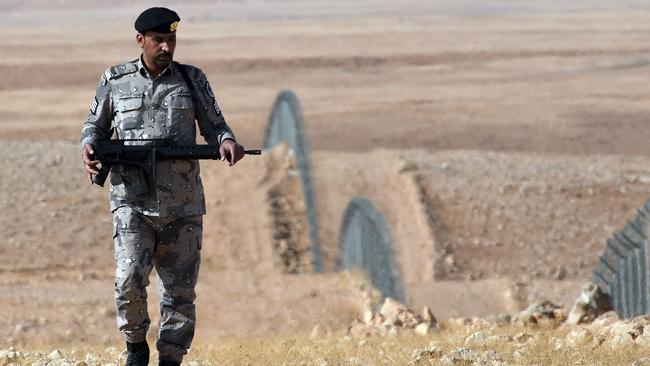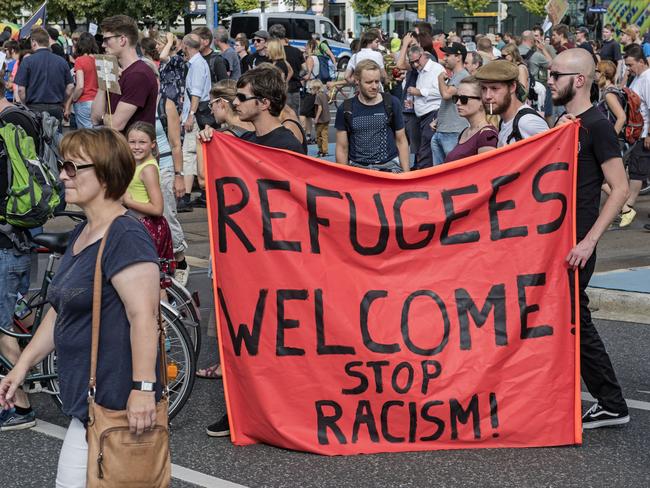Saudi Arabia must step up and help refugees
THE Saudis are not alone among Gulf states in shutting their doors to victims of the Syrian conflict. They must step up and help.

Opinion
Don't miss out on the headlines from Opinion. Followed categories will be added to My News.
IN the midst of what may turn out to be the greatest refugee crisis since the end of World War II, it is fair to ask whether all the nations of the world are doing their bit to take on the challenge and take in the victims of war and economic dislocation.
Which is why it is so disappointing that a country which, aside from a few big cities, is sparsely populated (in fact, most of the place is desert) yet is so rich in resources it ranks as one of the wealthiest nations in the world — but is doing so little to help the innocent victims of conflict in the Middle East. Especially when this nation has done so much to foment unrest in the region.
I speak, of course, about Saudi Arabia. With a population of just under 30 million and per capita GDP that makes it richer than Germany and just about every other asylum seeker destination in Europe (and Australia as well), the kingdom hosts, according to the World Bank, just 559 registered refugees.
Nor are the Saudis alone among Gulf states in shutting their doors to victims of the Syrian conflict. While Australia maintains one of the most generous resettlement programs in the world, and countries such as Germany propose taking hundreds of thousands of refugees themselves, the five richest Gulf states have taken a grand total of zero refugees from the Syrian conflict.
The Saudi government is so terrified of refugees that its Ministry of Social Affairs last week banned its citizens from adopting Syrian refugee children.
Yet countries such as Saudi Arabia and Qatar — both their governments and their citizens — bear no small responsibility for the present crisis. For decades they have directed their wealth towards funding a variety of proxy conflicts in the Middle East as well as variously pushing the spread of fundamentalist Wahhabi Islam and backing the Muslim Brotherhood around the Muslim world.
There are other good reasons for the Gulf States to take some of the pressure off the international refugee system, which is by all accounts bursting at the seams. Between them, Lebanon and Jordan, with nowhere near the resources, have taken in nearly two million Syrian refugees. With Saudi Arabia and its neighbours on board, an easy passageway could be negotiated for those fleeing both IS’s goon squads and Bashar al-Assad’s armies.

On a practical level, Syrians and Iraqis would face far fewer bars to entry into Saudi society than they might otherwise in Europe. They speak the same language and for the most part practise the same religion, avoiding the all-but-inevitable tension that is sure to occur as nations such as Germany try to settle large numbers of refugees who come from cultures that regard Western freedoms of speech, religious criticism, and sexual equality as alien, if not blasphemous.
Saudi Arabia also has about $US850 billion ($1.22 trillion) in construction projects on the go, so there would be plenty of work, in contrast to services-focused Western economies where those without languages or hi-tech skills might struggle.
So far the Gulf states have taken a depressingly defensive posture on the issue. But Western governments and their citizens who are talking about taking so much on are well within their rights to demand that rich Arab states take their fair share.



